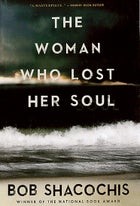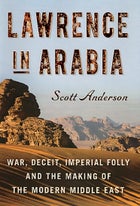The fall book season opens with ambitious works by two heavyweights, Bob Shacochis and Scott Anderson, writing on empire and the making of the modern world. It’s been two decades since Shacochis’s last novel, , and the ���ϳԹ��� contributing editor’s new offering, , doesn’t disappoint. Woman is a masterful novel with the power to shake the bones of Graham Greene. The title character is Dottie Chambers, a.k.a. Jackie Scott, a.k.a. Renee Gardner, an American secret agent with a penchant for self-reinvention and a keen interest in Haitian voodoo. Her violent death in Haiti entwines human-rights lawyer Tom Harrington and Delta Force operative Eville Burnette in a mystery that grows to encompass Croatia, Kenya, Pakistan, the Cali Cartel, and the geopolitical run-up to 9/11.


Harrington’s a classic Shacochis character—an ex-journo turned war-criminal hunter working the dark seams of Port-au-Prince—but the book belongs to Burnette, a Montana boy caught up in intrigue far beyond his pay grade. “We’re not interested in winning hearts and minds,” a Delta leader tells him. “For our guys, hearts and minds are targets. We shoot hearts and minds.” Burnette finds himself recruited into a defense undersecretary’s network of operatives running dark ops with (and against) Pakistani colonels, Mexican drug lords, and Saudis trying to foment jihad. This is no mere thriller, though; Woman is a book of deep beauty thanks to Shacochis’s hard-earned observations on war, justice, and U.S. naiveté. Americans, Shacochis writes, never took faraway, struggling nations seriously “until their faces were rubbed in the awfulness they sometimes made when they were seized by the exalted passion to remake the world.”
Like Shacochis, Anderson is concerned with the origins of our modern mess. A veteran war correspondent with extensive experience in the Middle East, he traces the genesis of the region’s fractious present back to T. E. Lawrence and the big bang of World War I.
In , Anderson chronicles the intersecting paths of Lawrence, the charismatic British Army officer, and three others whose Great War espionage, influence, and skullduggery cracked the Ottoman Empire apart. Anderson leaves no clandestine pact or subtle double cross unmentioned. The other main players—an American oilman turned spy, a Jewish agronomist with Zionist designs on Palestine, and a German agent trying to incite anti-British sentiment among Muslims—are compelling, but they can’t compete with the brilliant Lawrence, who adapted to Arab culture and crossed deserts only Bedouin could survive.
Everything you remember from the film Lawrence of Arabia is here, including his role in the daring 1916 Arab raid on Ottoman Empire forces in Aqaba and his failed dream of estab-lishing an Arab state. Anderson’s final chapter brilliantly stitches together the ways in which all the machinations of the Great War led to the troubles of the past century—“a catalog of war, religious strife, and brutal dictatorships.” Anderson, like Shacochis, reminds us that today’s small conflicts and porous borders will surely blow up into tomorrow’s larger war. We just don’t know when.


